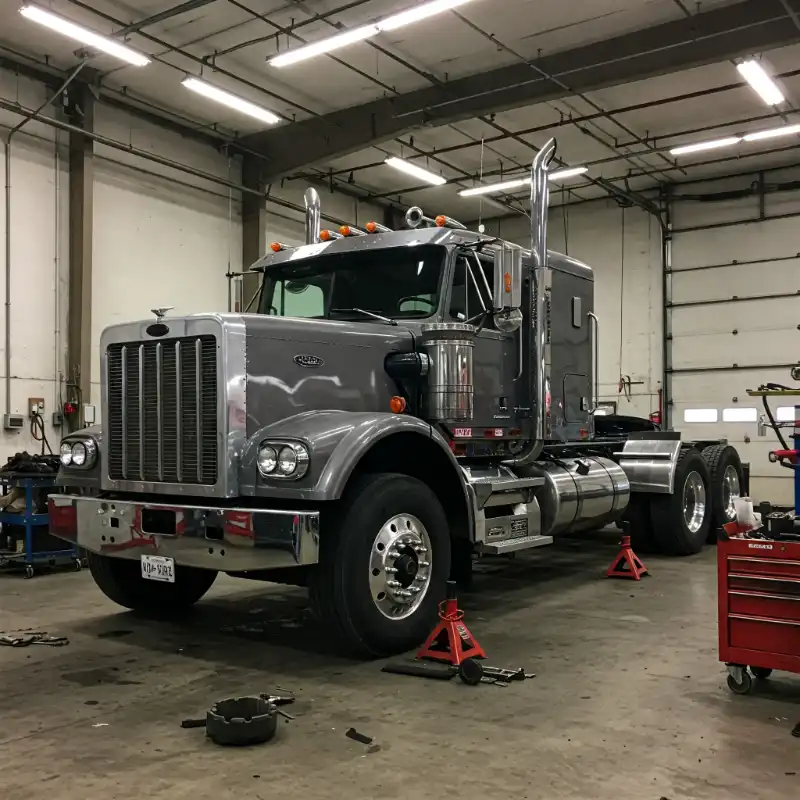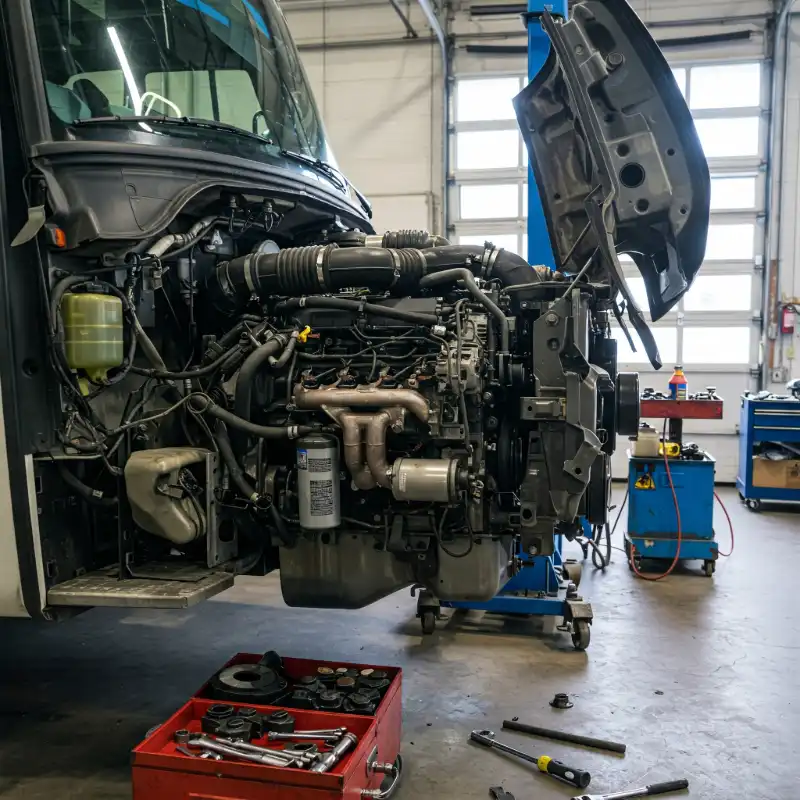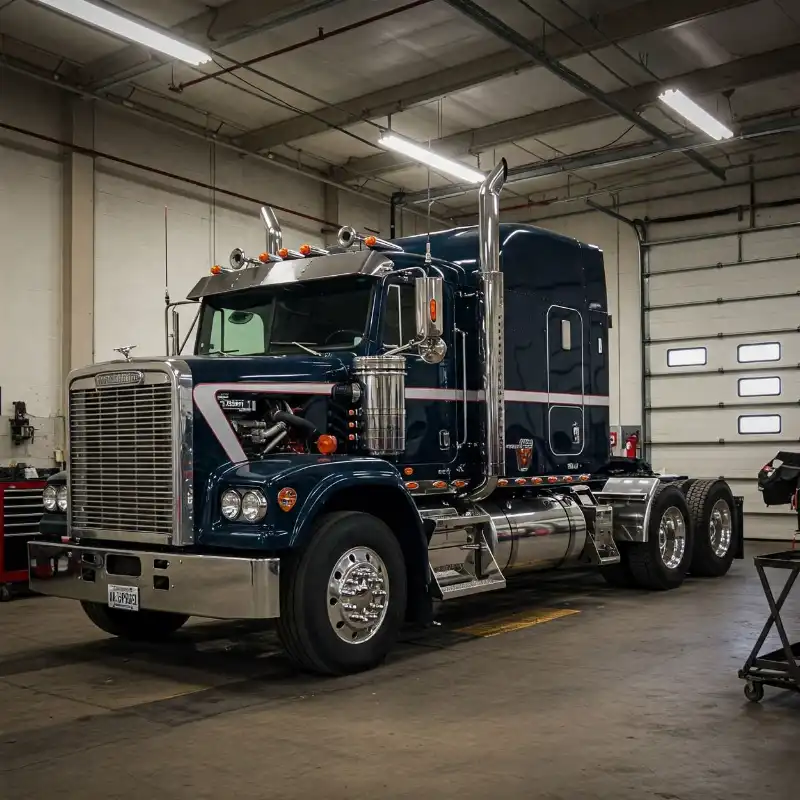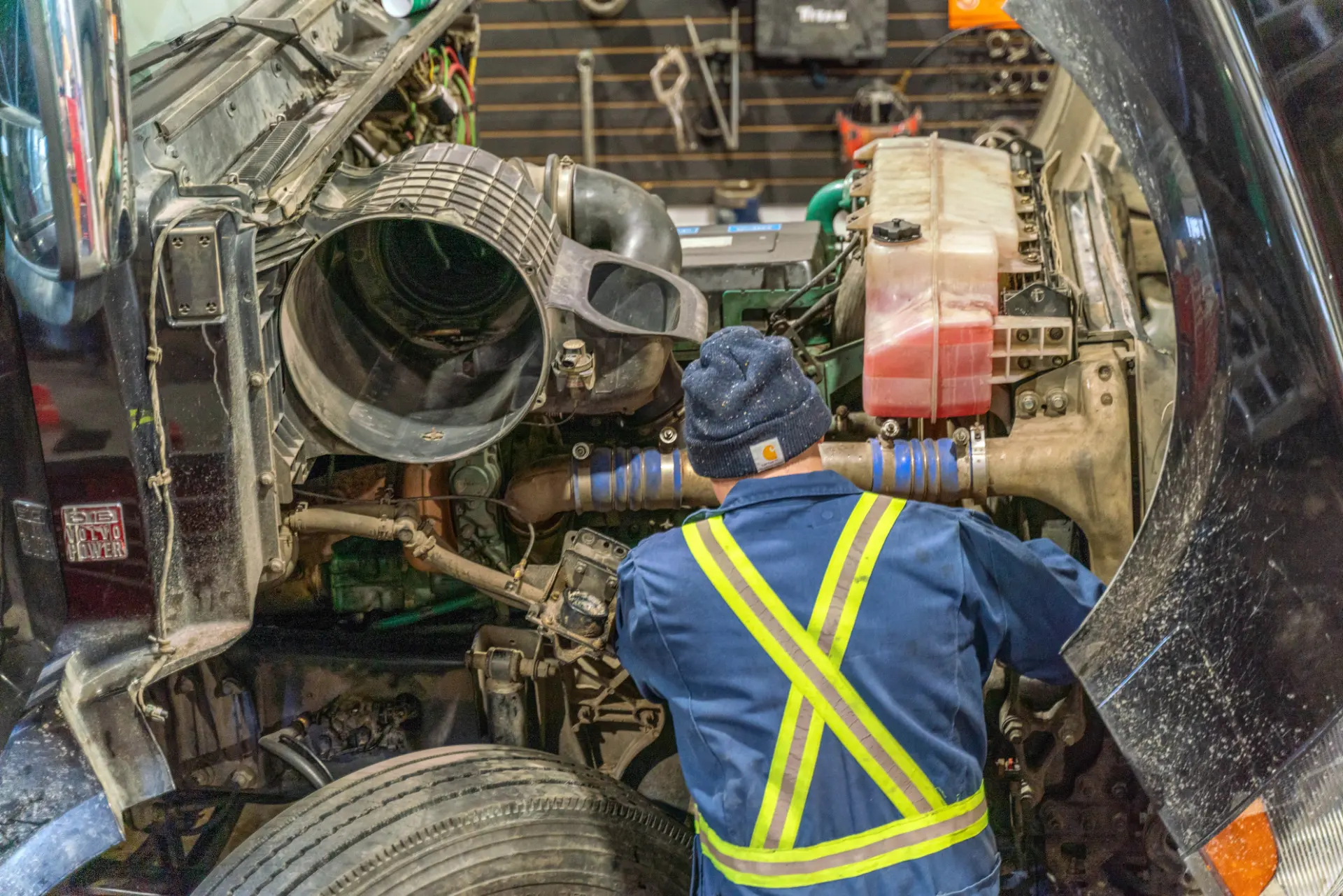Upgrading Heavy-Duty Truck Exhaust Systems for Improved Performance
A truck's exhaust system is vital for performance and efficiency. Upgrading enhances engine performance, fuel efficiency, and reduces emissions. This article explores heavy-duty truck exhaust systems, emphasizing benefits and guiding your choice.

The exhaust system plays a crucial role in determining both performance and efficiency. These systems are not just about directing exhaust gases away from the engine and reducing noise; they're integral to the optimal functioning of the truck. Upgrading the exhaust system of a heavy-duty truck can lead to significant improvements in engine performance, and fuel efficiency, and even reduce the environmental impact through lower emissions. This article delves into the intricacies of heavy-duty truck exhaust systems, highlighting the benefits of upgrades, and guides you through choosing and maintaining the right system for your truck.
Understanding Exhaust Systems in Heavy-Duty Trucks
Exhaust systems in heavy-duty trucks are complex assemblies that play a pivotal role in engine efficiency and environmental compliance. Here are the key components:
Exhaust Manifold: This component collects exhaust gases from multiple cylinders and directs them into one pipe. Efficiently moving these gases ensures the engine runs smoothly and reduces the risk of backpressure, which can hamper performance.
Turbocharger: A critical component for modern trucks, the turbocharger uses exhaust gases to spin a turbine, compressing air into the engine's combustion chamber. This process increases the oxygen available for combustion, leading to more power and better fuel efficiency.
Diesel Particulate Filter (DPF): In diesel trucks, the DPF captures and stores soot (particulate matter) from the exhaust gas. Periodically, the soot is burned off at high temperatures, a process known as regeneration, keeping emissions in check.
Selective Catalytic Reduction (SCR) System: This advanced system injects a urea-based fluid into the exhaust stream, which reacts with nitrogen oxides, converting them into harmless nitrogen and water vapor, significantly reducing harmful emissions.
Exhaust Pipes and Mufflers: These components channel exhaust gases out of the truck, with mufflers specifically designed to reduce noise.
Signs Your Truck's Exhaust System Needs an Upgrade
Identifying the right time to upgrade your heavy-duty truck's exhaust system is crucial for maintaining its optimal performance and efficiency. One of the most apparent signs is a noticeable decrease in fuel efficiency. If your truck consumes more fuel than usual under the same driving conditions, it might indicate an issue with the exhaust system. This inefficiency can stem from clogged components like the diesel particulate filter (DPF) or a malfunctioning exhaust manifold, which hinder the engine's ability to expel exhaust gases efficiently.
Another key indicator is a decline in engine performance. Difficulty in acceleration, a noticeable drop in power, or an overall sluggish response can all be symptomatic of an exhaust system needing an upgrade. Additionally, unusual noises such as rattling or loud rumbling from the exhaust system suggest potential issues with its integrity, like holes, cracks, or loose components. Visible smoke or soot emanating from the exhaust, especially if darker than usual, also points to inefficiencies in the exhaust system. Lastly, heavy-duty trucks with diagnostic systems may trigger a check engine light, which should be addressed as it often signals exhaust system problems.
Benefits of Upgrading Your Exhaust System
Upgrading the exhaust system in a heavy-duty truck brings many benefits, the key being improved engine performance and efficiency. A high-quality, well-designed exhaust system can significantly reduce backpressure, allowing the engine to expel exhaust gases more efficiently. This reduction in backpressure enables the engine to breathe better, ensuring more complete combustion of fuel, which translates to increased power output and better fuel economy.
Additionally, exhaust systems, particularly those equipped with advanced diesel particulate filters and selective catalytic reduction systems, are more effective in reducing harmful emissions. This not only contributes to a cleaner environment but also helps in complying with environmental regulations.
Another significant advantage of upgrading your exhaust system is the potential for substantial fuel savings and operational cost reduction. Fuel costs constitute a significant part of heavy-duty truck operational expenses, so any fuel efficiency improvement can lead to considerable cost savings over time.
A well-functioning exhaust system requires less maintenance and is less prone to breakdowns, reducing operational costs. Upgrades like high-flow mufflers and larger diameter exhaust pipes also contribute to a smoother running engine and a quieter operational sound, enhancing the driving experience.
Finally, upgrading the exhaust system can significantly improve the engine's longevity. An upgraded system can minimize wear on critical engine components by efficiently removing exhaust gases and reducing the engine's workload, extending the engine's life.
In summary, upgrading the exhaust system is not just about meeting regulations or reducing emissions; it's a strategic decision that enhances overall truck performance, reduces operational costs, and contributes to environmental sustainability.
Choosing the Right Exhaust System Upgrade
Selecting the appropriate exhaust system upgrade for a heavy-duty truck is a decision that requires careful consideration of several factors. Firstly, the type of truck and its specific usage play a pivotal role in determining the most suitable upgrade. Heavy-duty trucks have varying requirements based on their engine size, load capacity, and the nature of their operation. For instance, trucks used in long-haul transportation may benefit more from upgrades that prioritize fuel efficiency, while those used in urban settings might need systems optimized for reduced emissions.
What Budget is Required for Exhaust System Upgrades?
Budget is another critical factor. While it's tempting to opt for the most advanced system, weighing the cost of the upgrade against the expected benefits is essential. Assessing potential fuel savings and reduced maintenance costs can provide a clearer picture of the return on investment. It's also essential to consider the range of available upgrades. Options vary from replacing specific components like mufflers or exhaust pipes to installing entirely new systems with advanced filtration and emission control technologies.
Seek Professional Help From Heavy-Duty Truck Mechanics!
Seeking professional advice is crucial when choosing an exhaust system upgrade. A qualified mechanic can offer insights into the best options based on your truck’s model and usage, ensuring compatibility and optimal performance. They can also assist in navigating the complexities of regulatory compliance, ensuring that the upgraded system meets all required emissions standards. The right exhaust system upgrade should balance performance enhancements, cost-effectiveness, and compliance with environmental regulations, ensuring it aligns with your operational needs and sustainability goals.
Contact Us Today For Premium Exhaust System Improvements
Ready to boost the performance and efficiency of your heavy-duty truck? Contact Fleetgo Heavy Duty today, where expertise meets quality service. Our team of skilled mechanics specializes in exhaust system upgrades and maintenance, ensuring your heavy-duty truck operates at its best. Don’t wait for performance to decline; upgrade today for a smoother, more efficient drive.
More Articles

5 Common Issues Found During CVIP Inspections in Edmonton

Spring Driving Prep: What Your Car Needs After Winter

The Biggest Fleet Repair Mistakes Business Owners Make
Contact FleetGo
Get in touch with Fleetgo today to request a quote or to schedule in-shop or mobile services in Edmonton & the surrounding area! Our mobile service extends to a 100km radius around Edmonton for emergency roadside assistance & mobile truck & fleet repairs, including Sherwood Park, Spruce Grove, Fort Saskatchewan, St. Albert, Stony Plain, along Highway 16, & more!



